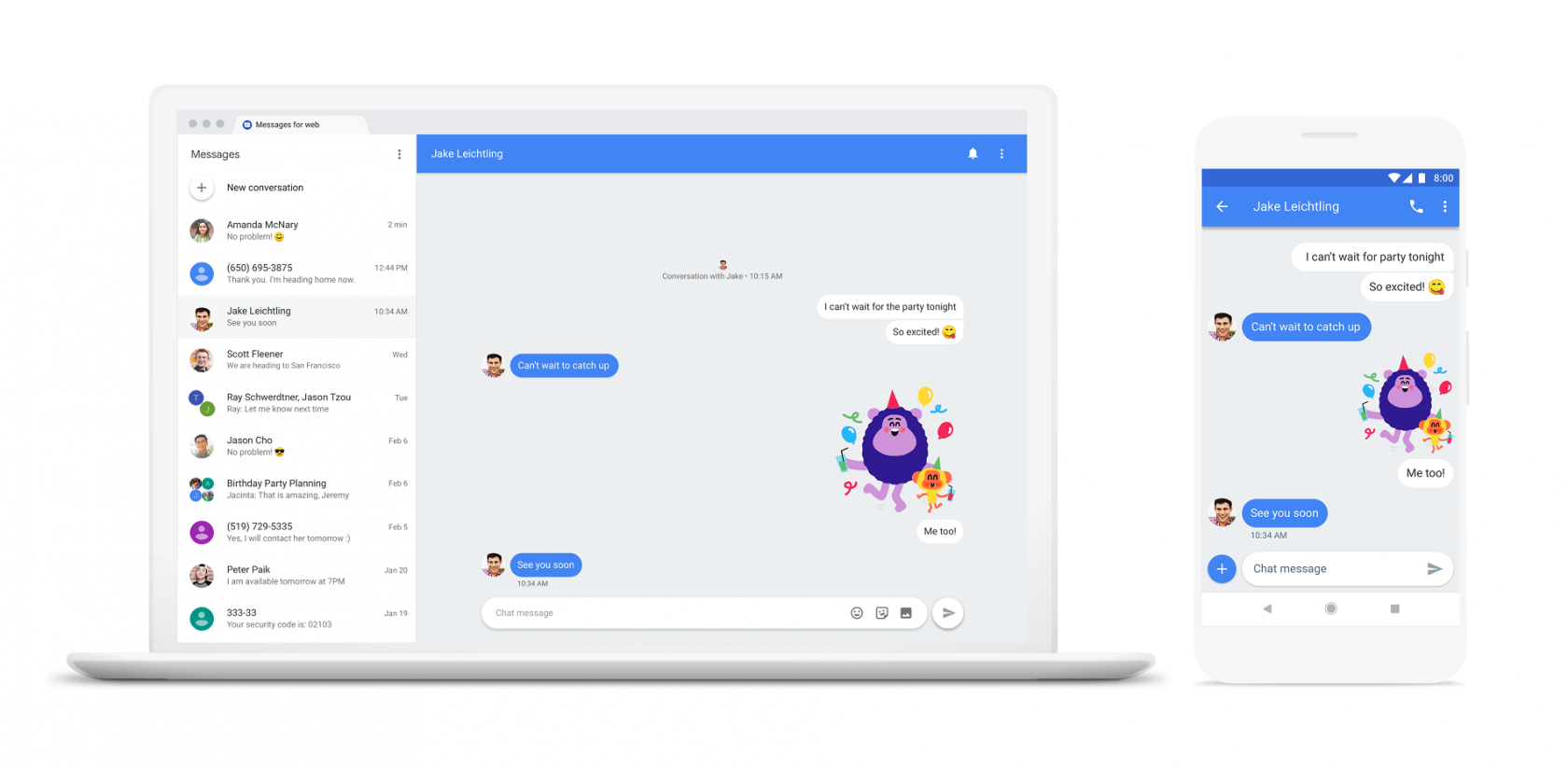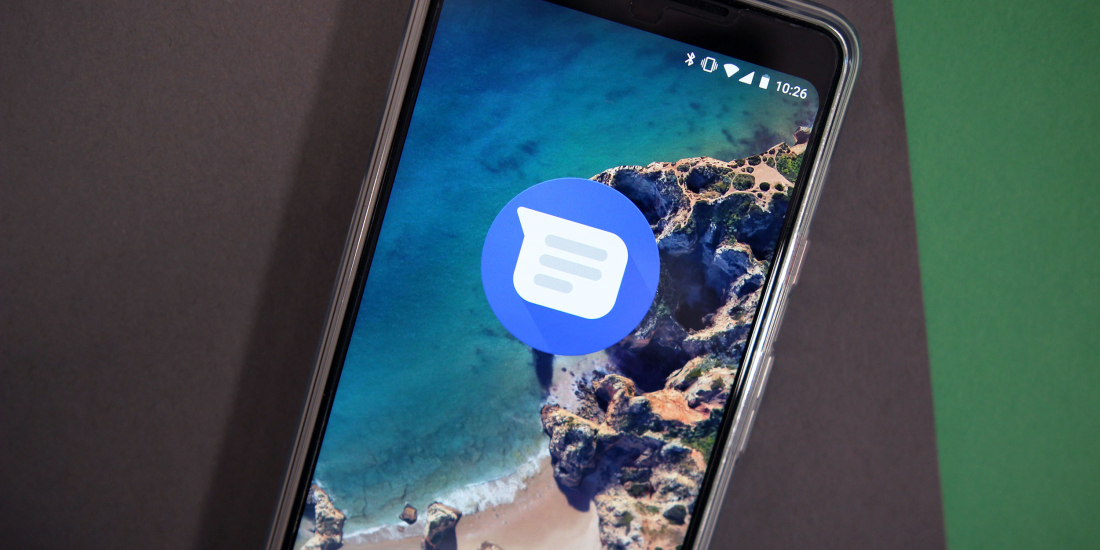We've known about Google's plans to replace SMS with the Rich Communication Services standard (RCS) for a couple of years. Now, it's been revealed that the company's brand name for this iMessage-style experience is 'Chat,' and it should be here sometime during 2018.
While many people prefer using messaging apps like WhatsApp and Facebook Messenger to communicate, there are still almost 23 billion text messages sent every day. As such, Google wants to improve this long-used technology, which turned 25 in December, with features found in popular applications; this includes read receipts, full-resolution images and video, typing indicators, improved group chats, and more.
The Verge explains that Chat's features will be automatically turned on inside Android Messages, which is the operating system's default texting app. Users won't be charged for sending a Chat message in the same way they would with an SMS; instead, it uses a phone's data plan, so the cost should be small. And with Microsoft supporting RCS, users might be able to text people directly to their phones from Windows 10 devices.

Messaging someone who doesn't have Chat enabled, such as iOS users, will result in them receiving a standard SMS message. Whether the iPhone will eventually support Chat is unknown.
Chat is a carrier-based service, and Google has been working to ensure that every carriers' Chat service plays nicely with each other. Currently, 55 carriers and 11 OEMs worldwide have signed on to support RCS.
While all this sounds good, there is one issue with Chat that could put people off: it lacks end-to-end encryption, meaning messages will be stored on your carrier's servers. In an age when people are worried about government spying and surveillance, this caveat could see them stick with the likes of WhatsApp and Signal.
Google says that Chat should be available in the US by the end of the year, before rolling out to other locations. As it focuses on Chat, the company is putting development of messaging app Allo on "pause." The WhatsApp/Messenger rival launched in September 2016, but it hasn't been as popular as Google anticipated.
